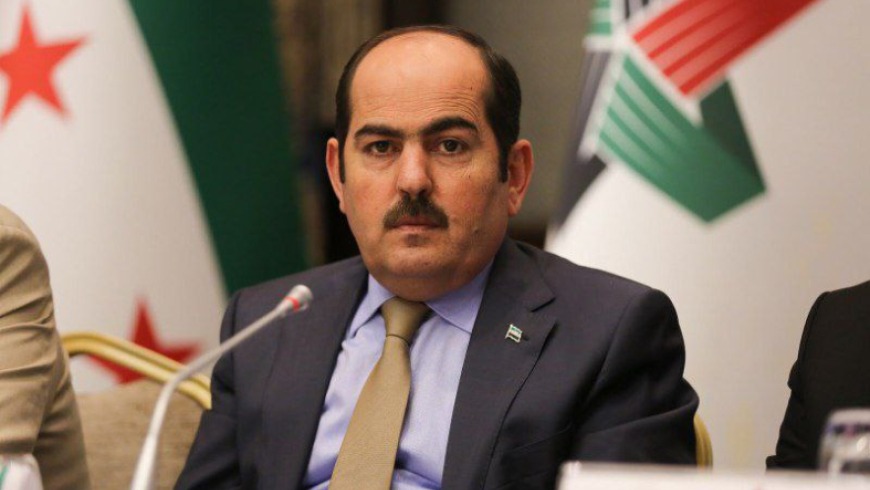Last week, a significant meeting took place at Gaziantep Airport in southern Turkey, involving representatives from the Turkish Ministry of Foreign Affairs and Intelligence, along with key figures from the Syrian National Coalition, the Interim Government, the Negotiating Body, the Council of Tribes and Clans, and leaders of the Syrian National Army.
The four-hour meeting exposed deep divisions within the Syrian opposition. Most attendees agreed that resolving these tensions would require fundamental changes in the leadership and management of the institution governing northern Syria. Others argued that the current discord stemmed from the involvement of certain factions within the National Army with the opposition’s official institutions and their growing dominance over decisions in the revolutionary movement.
Following the meeting, the Levant Front, a key faction within the National Army, issued a statement suspending its cooperation with the Syrian Interim Government. It called for an emergency session of the Coalition to withdraw confidence from Abdul Rahman Mustafa’s government and refer him to the judiciary.
SOC remains silent
Neither the National Coalition nor the Interim Government has responded to the Levant Front’s statement. However, journalist Samer al-Ani told Syria TV that the most recent meeting of the Coalition’s political body focused primarily on developments in Aleppo’s countryside. During this meeting, three committees were established to address the latest tensions.
The first committee is tasked with investigating the financial dealings of the Interim Government. The second will examine accusations made by Prime Minister Abdul Rahman Mustafa against the Levant Front. The third is set to investigate an incident in which one of Mustafa’s affiliates attacked other Coalition members.
Ani also revealed that the Coalition might soon hold an emergency session to discuss Mustafa’s potential dismissal, noting that recent protests in the Aleppo countryside have pressured the Coalition’s political body to take decisive action.
In the past few days, several names have surfaced as potential candidates to replace Abdul Rahman Mustafa, including Coalition Vice President Abdul Majeed Barakat, Secretary-General of the Syrian Tribes and Clans Council Jihad Marei, and the Interim Government’s Minister of Local Administration Muhammad Saeed Suleiman. However, none of these rumors have been confirmed, and Abdul Rahman Mustafa has yet to comment on inquiries from Syria TV regarding his future in office.
What’s Next for the Prime Minister?
Dr. Samir Al-Abdullah, Director of Policy Analysis at the Harmoon Center for Contemporary Studies, believes that Abdul Rahman Mustafa’s fate is largely tied to Turkey’s stance. Should the Turkish government support Mustafa, it is unlikely that anyone will succeed in ousting him, especially given the influence Mustafa and his allies, the “G4 members,” hold over a majority of the Coalition.
In an interview with Syria TV, Dr. Samir Al-Abdullah stated, “The possibility of a vote of no confidence against Abdul Rahman Mustafa depends entirely on a request from the Turkish side, particularly since his role has started to harm Turkish interests in northern Syria. Replacing him, along with other opposition leaders, has become a central demand of protesters and demonstrators in northern Syria. His continued leadership risks further clashes with certain factions.”
Al-Abdullah also mentioned a second scenario involving Turkish mediation between Mustafa and the factions, led by the Levant Front. While this might temporarily de-escalate tensions, it would not change the broader realities on the ground, including protests rejecting opposition leaders and demands to reopen border crossings with the Assad regime. Al-Abdullah expects that Turkey may eventually seek to replace Mustafa with another figure more aligned with its interests, likely another Turkmen.
Former head of the National Coalition, Nasr al-Hariri, commented, “Based on my understanding of the internal dynamics within the opposition, the current push to remove the interim government’s leader suggests that his political backing may be waning. I anticipate changes at the top.”
However, Hariri expressed skepticism about any significant shift in leadership: “The likely alternative won’t differ much from Mustafa because the current leadership was not chosen democratically or through elections.”
Hariri also emphasized that the responsibility for the current situation does not rest solely on the prime minister. “The Coalition and its various bodies share responsibility for this crisis. The prime minister was appointed because he had the approval and support of others. To blame him alone is unfair.”
A Structural Crisis
Commentator Hassan Al-Nifi described the ongoing turmoil within the Syrian opposition as a deep-seated, structural crisis rather than a temporary or emergent issue. “This crisis stems from the very foundations of these opposition entities and the criteria used in their formation, along with the nature of their leadership. The public fallout we witnessed at the Gaziantep Airport meeting is the inevitable result of a long series of mistakes and persistent mismanagement.”
Al-Nifi added that the problem extends beyond the head of the interim government. “The Coalition and its offshoots, including the Negotiating Body, were not established based on the popular will of the Syrian people or professional standards, but rather on loyalty and the ability to influence Turkish decision-makers. As a result, the leaders of these official opposition bodies believe they must protect their positions and privileges, often at the expense of the public good.”
This article was translated and edited by The Syrian Observer. The Syrian Observer has not verified the content of this story. Responsibility for the information and views set out in this article lies entirely with the author.


